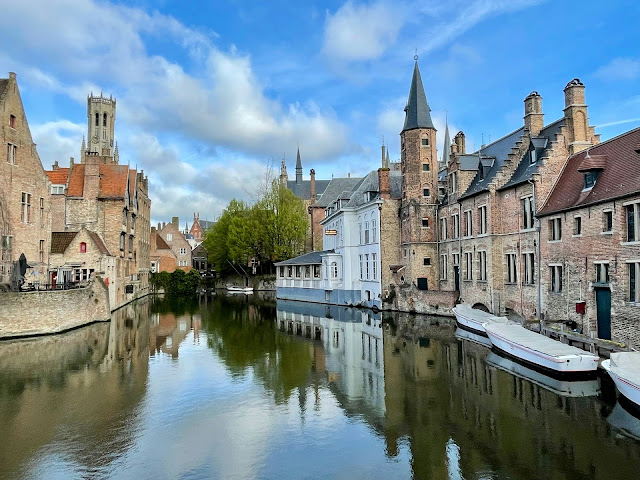Unraveling the Enigma: Exploring Post-Travel Blues
The world of travel is often painted with vibrant hues of adventure, discovery, and joy. But what if, contrary to popular belief, you find yourself returning from a journey feeling somewhat out of sorts? If you've ever wondered, "Why don't I feel good after traveling?" you're about to uncover a lesser-discussed aspect of the travel experience: the post-travel blues.
In this blog post, we'll delve into the reasons behind this phenomenon and offer insights on how to navigate these emotions.
The Bittersweet Farewell to Novelty:
Travel gifts us the privilege of exploring new cultures, savoring novel experiences, and immersing ourselves in unfamiliar surroundings. However, the intoxicating sense of novelty that accompanies travel can wane upon returning home. The contrast between the vibrant novelty of your journey and the routine of your daily life can leave you yearning for that fleeting excitement.
Navigating the Nostalgia Trap:
Memories crafted during your travels often shine like treasured gems in your mind. You recall the laughter, the sights, and the camaraderie shared with fellow travelers. Yet, as time goes by, the allure of these memories can cast a shadow on your current reality. Nostalgia can lead you to compare your present experiences unfavorably, creating a discord between your expectations and reality.
An Odyssey of Disconnect:
Travel often gives us the opportunity to break free from the constraints of our routines. However, this liberation comes with a price. Reverting to your routine after an adventurous escapade can feel restrictive and disorienting. This disconnect between your free-spirited travel self and your everyday self can leave you feeling disjointed and unsettled.
The Intricacies of Reverse Culture Shock:
Venturing into foreign lands opens your eyes to diverse perspectives and ways of life. Upon your return, you might find your own culture viewed through a new lens. The revelation of previously unnoticed aspects can lead to reverse culture shock, where you struggle to reconcile your expanded worldview with the familiar surroundings. This emotional tug-of-war can leave you feeling isolated and misunderstood.
The Post-Adventure Contemplation:
Travel is often a catalyst for self-discovery and introspection. As you explore new horizons, you may contemplate your goals, dreams, and life choices. These ruminations can follow you back home, leading to a period of reflection that might stir feelings of restlessness or dissatisfaction.
The post-travel blues, though often unexpected, are a natural part of the travel experience. Acknowledging these emotions and normalizing them can help you navigate the transition with greater ease. Embrace the unique learning opportunities that come with post-travel introspection, and remember that just as your travels enriched your life, so can your daily routine offer moments of fulfillment.
Stay connected with fellow travelers, relive the memories, and slowly reintegrate the lessons and perspectives you gained during your journey into your everyday life. By recognizing that the journey doesn't truly end when you return, you can embrace the multifaceted nature of travel, both the highs and the lows, as part of your personal growth and exploration.
What is post vacation syndrome?
Post-vacation syndrome, often referred to as "post-vacation blues" or "post-travel depression," is a term used to describe a set of negative emotions and feelings that some individuals experience after returning from a vacation or a trip. It's a phenomenon where the excitement and enjoyment of the vacation are replaced by feelings of sadness, lethargy, and a sense of disconnection or unease. This emotional state can vary in intensity and duration, with some people experiencing mild feelings of melancholy while others may have more intense feelings of distress.
Some common symptoms of post-vacation syndrome include:
Mood Swings: Sudden shifts in mood from the excitement of the vacation to a sense of gloominess or irritability upon returning home.
Lack of Motivation: Feeling unmotivated or uninterested in resuming regular daily activities and responsibilities.
Fatigue: Experiencing physical and mental fatigue, even though the vacation was intended to be relaxing.
Disconnection: Feeling disconnected or detached from one's regular routine, work, and social circles.
Nostalgia: Pining for the experiences, people, and places encountered during the vacation, leading to a sense of longing.
Difficulty Concentrating: Struggling to concentrate on tasks and responsibilities due to preoccupation with vacation memories.
Restlessness: Anxious or restless feelings stemming from a desire to continue the excitement and novelty of the vacation.
Several factors can contribute to post-vacation syndrome:
Transition Shock: Going from a carefree and stimulating environment to the routine and demands of daily life can be jarring and lead to a sense of imbalance.
Nostalgia: Fond memories created during the vacation can lead to a sense of longing, making it challenging to adjust to the present.
Unmet Expectations: Unrealistic expectations about the vacation or returning home can result in disappointment.
Cultural Adjustment: If the vacation involved exposure to a different culture, returning to one's own culture can lead to feelings of disconnection or even reverse culture shock.
Routine Disruption: The disruption of daily routines during the vacation can make it difficult to transition back into them.
Comparison: Comparing the vacation experience to everyday life can magnify the differences and make the routine seem mundane.
To alleviate post-vacation syndrome, consider the following tips:
Give Yourself Time: Understand that it's normal to feel a bit off after a vacation. Allow yourself some time to readjust.
Reflect on the Positive: Focus on the positive aspects of your vacation and carry those lessons or experiences into your daily life.
Plan Ahead: Have a plan for easing back into your routine and schedule.
Stay Connected: Maintain connections with friends and loved ones, and share your vacation experiences with them.
Engage in Self-Care: Engage in activities that help you relax and decompress, whether it's exercise, hobbies, or spending time outdoors.
Plan Future Adventures: Having something to look forward to, even if it's just a small outing, can help alleviate post-vacation blues.
Remember, while it's natural to experience a bit of a letdown after a vacation, persistent or severe feelings of sadness, anxiety, or depression should be taken seriously and discussed with a mental health professional.




Comments
Post a Comment
It's easy to leave a comment on our blog – anyone with a Google account can do it. We invite you to share your experiences by leaving a comment as well.